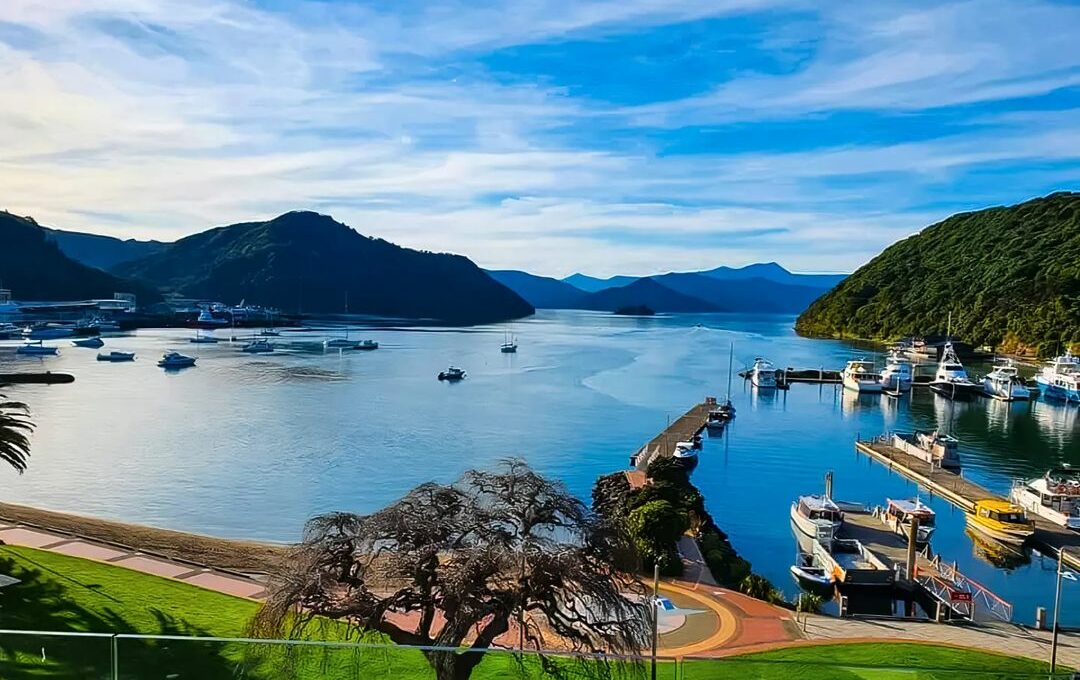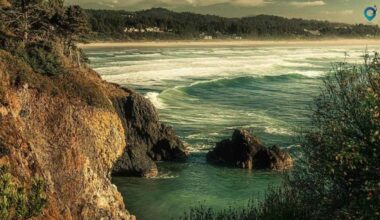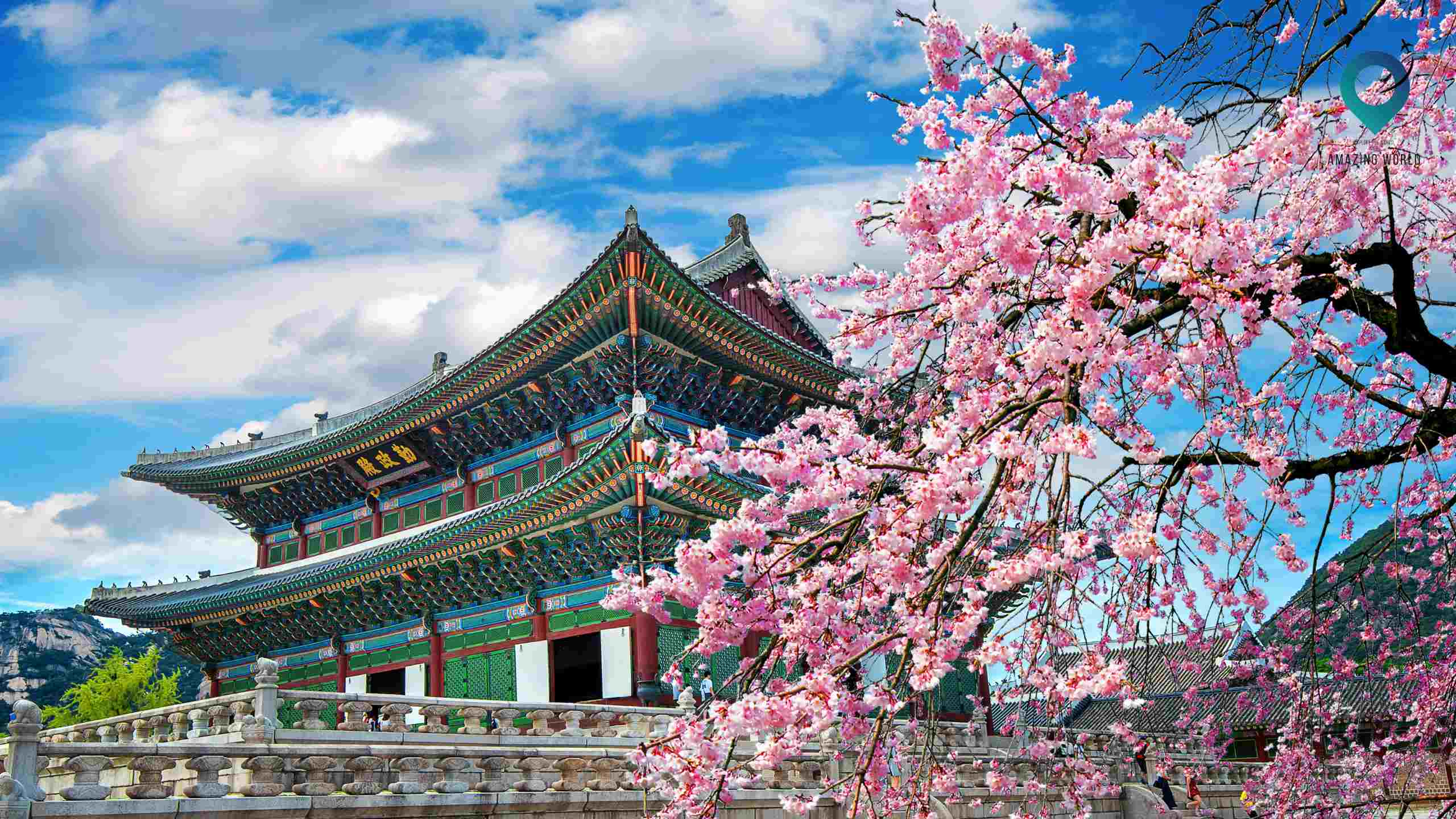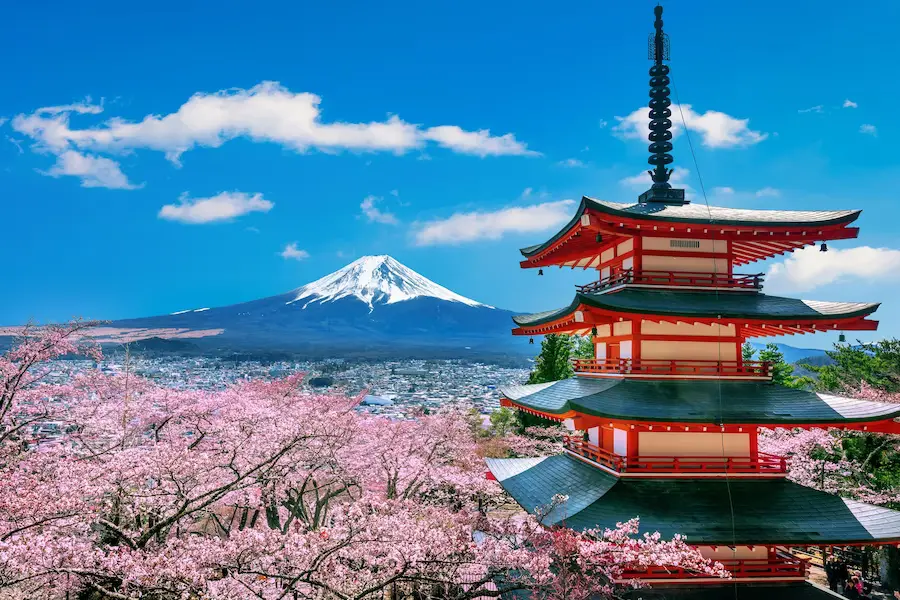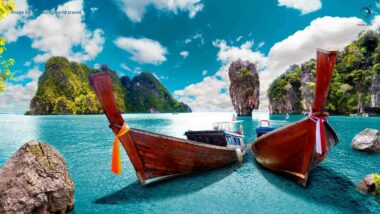An Epic 2-Week New Zealand Travel Trip Itinerary
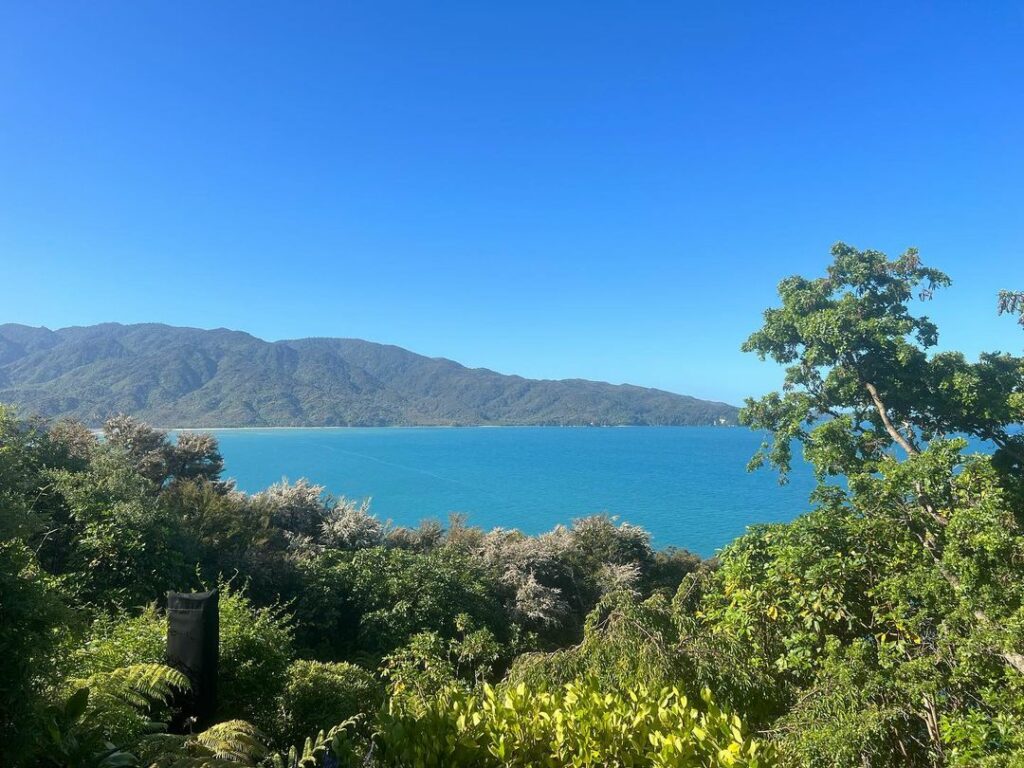
About New Zealand
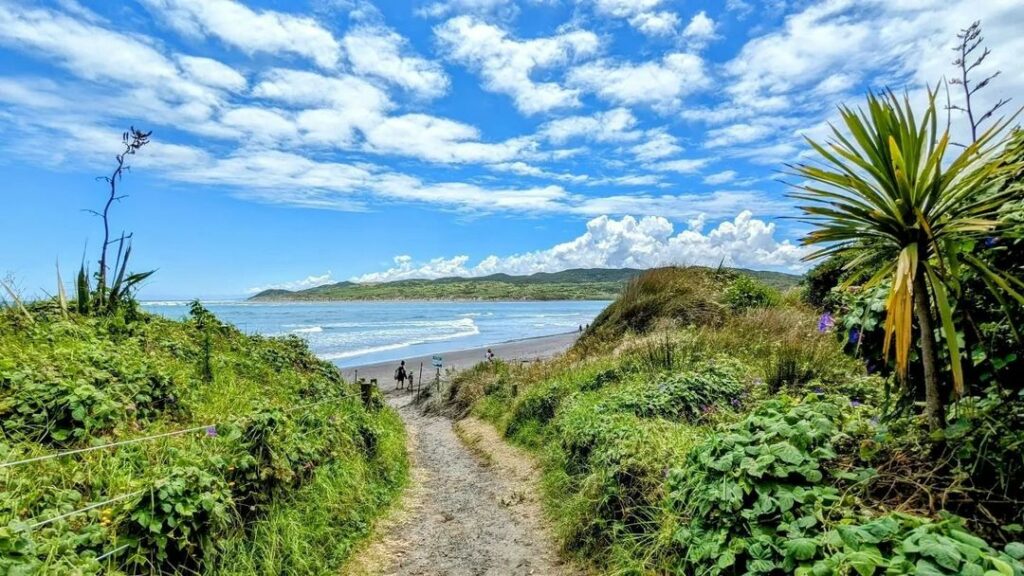
New Zealand is a beautiful island country in the Pacific Ocean. It has two main parts, the North Island and the South Island, along with many smaller islands. The North Island has amazing geothermal places and a busy city called Auckland. The South Island is known for its stunning fjords, big mountains, and the exciting town of Queenstown. Everywhere you go, you’ll find green forests, clear lakes, and lots of things to do outside.
People in New Zealand, called Kiwis, have a special Maori culture that’s been part of the country for a long time. They speak Maori, their own language, and have unique customs. The mix of Maori and European influences shows up in their art, music, and food, making everything rich and interesting.
New Zealand is famous for its cute kiwi birds and other animals. The country takes good care of its environment, and they’re serious about keeping it clean and green. It’s a place where you can do exciting activities like hiking, skiing, and bungee jumping.
You might recognize New Zealand’s landscapes from movies like “The Lord of the Rings.” The country loves adventure, and you’ll find plenty of it in the great outdoors.
The Kiwis are friendly and welcoming, making you feel at home. Whether you explore cities, go on adventures in nature, or learn about Maori traditions, New Zealand is a fantastic place to visit and discover amazing things.
How to Reach New Zealand
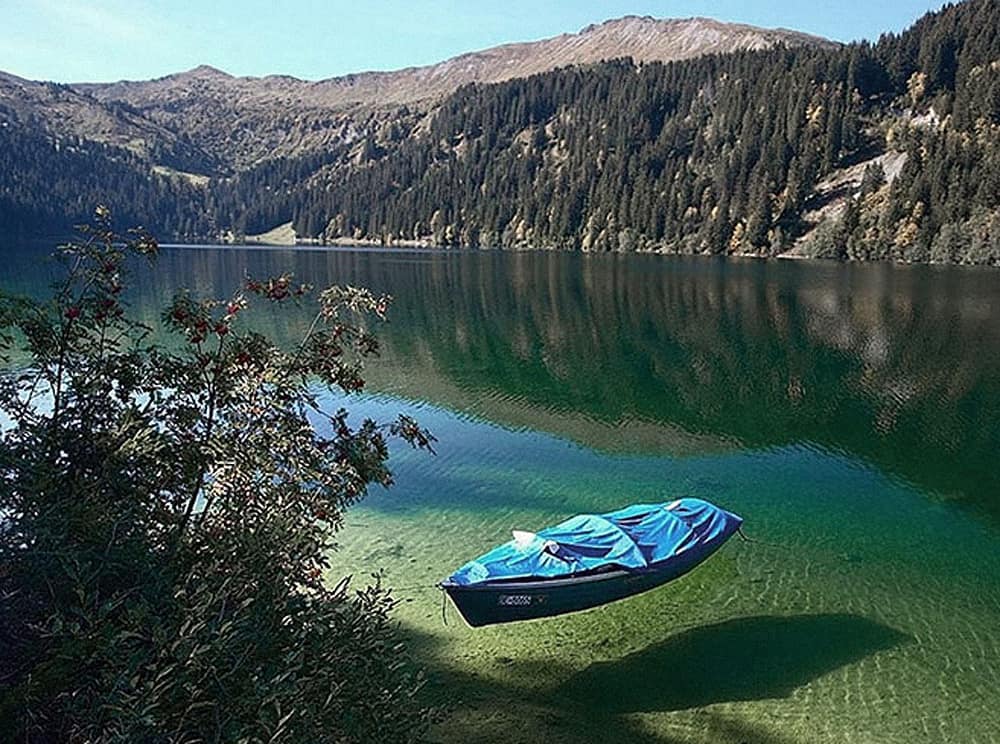
Visa and Entry Requirements: Before packing your bags, check the visa and entry requirements for New Zealand. Depending on your nationality, you might need a visa to enter the country. Visit the official website or contact the New Zealand embassy in your home country to get accurate and up-to-date information. Make sure to apply for the necessary visas well in advance to avoid any last-minute complications.
Booking International Flights: Booking your international flights is crucial in planning your journey. Look for flights to major airports in New Zealand, such as Auckland, Wellington, or Christchurch. Compare prices from different airlines and consider booking well in advance to secure the best deals. Popular airlines often offer direct flights, but you might also find cost-effective options with layovers.
Transportation Services from the Airport to Hotels: Once you arrive in New Zealand, you’ll need a reliable way to get from the airport to your accommodation. Several transportation services are available:
- Airport Shuttles: Shared shuttles provide cost-effective transportation to various locations. They are convenient for travelers with flexible schedules.
- Taxis: Taxis are readily available at airports and offer a convenient door-to-door service. Make sure to choose licensed taxis for safety.
- Public Transportation: In some cities, public buses or trains connect the airport to the city center. Check the local transportation options and schedules.
- Car Rentals: If you prefer flexibility, you can rent a car at the airport. This is a great option if you explore different parts of New Zealand independently.
A Complete Family-Friendly 2- Weeks Day-By-Day Travel Itinerary, New Zealand
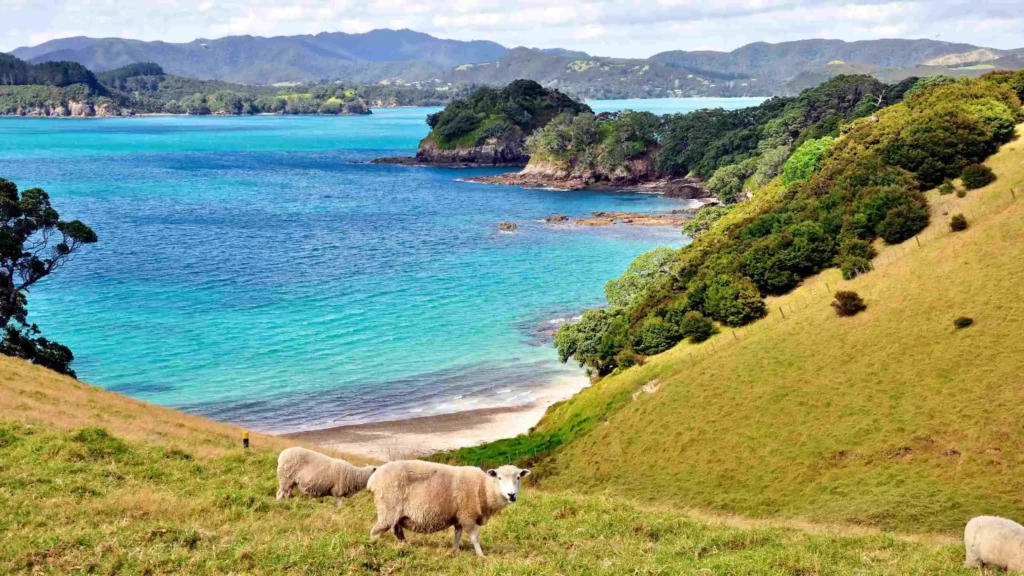
Day 1-3: Auckland, North Island
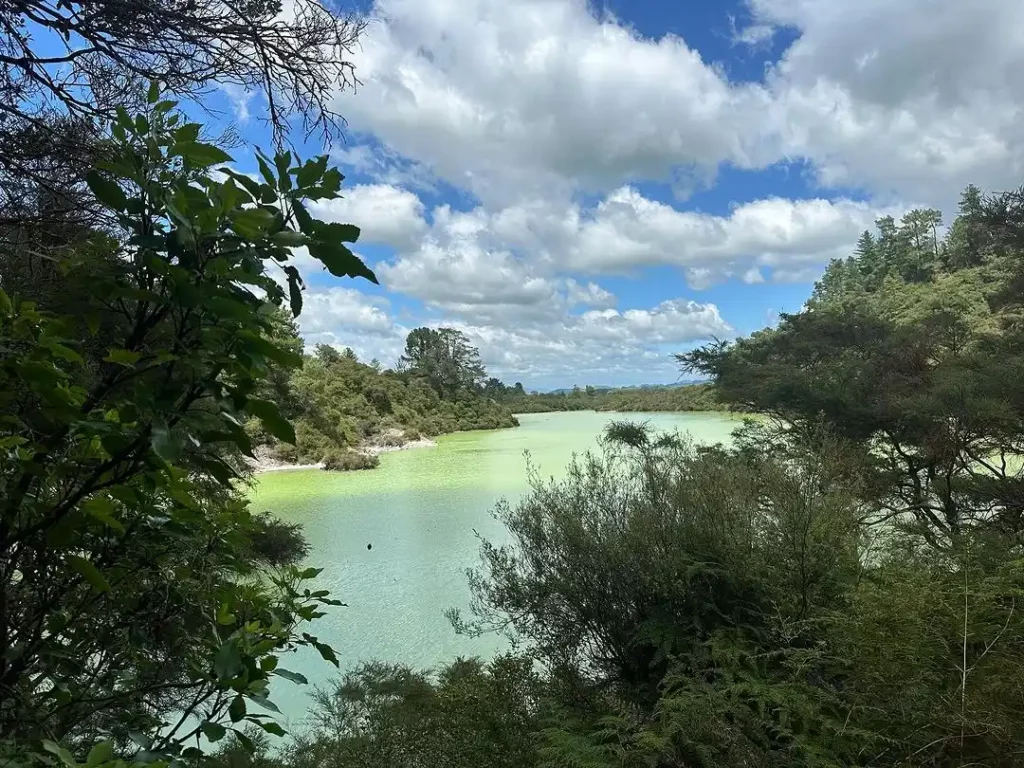
Day 1: Arrival in Auckland
- Morning (9:00 AM – 12:00 PM): Arrive at Auckland Airport. Take a pre-arranged shuttle or taxi to the hotel.
- Afternoon (12:00 PM – 3:00 PM): Check-in and freshen up. Head to Viaduct Harbour for a family-friendly lunch.
- Late Afternoon (3:00 PM – 6:00 PM): Explore Auckland’s waterfront. Visit the Auckland Maritime Museum.
- Evening (7:00 PM Onwards): Dinner at a family-friendly restaurant in the city.
Day 2: Auckland Zoo and Sky Tower
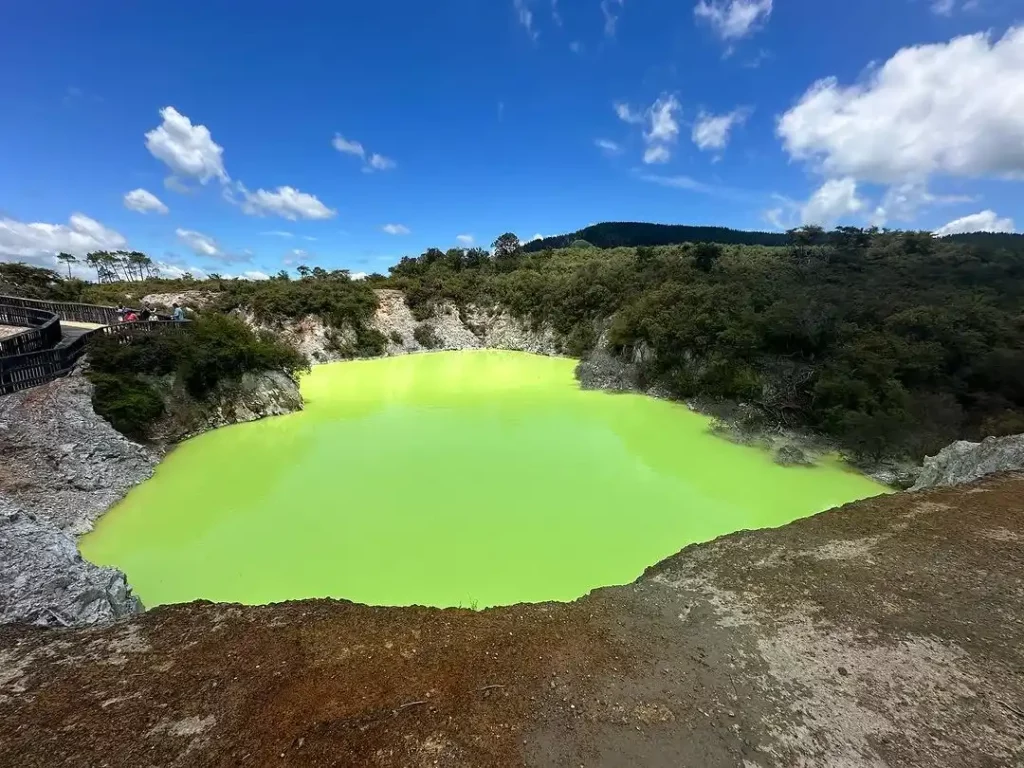
- Morning (9:00 AM – 12:00 PM): Visit Auckland Zoo. Enjoy a picnic lunch.
- Afternoon (1:00 PM – 4:00 PM): Take a trip to the Sky Tower for panoramic views of the city.
- Late Afternoon (4:00 PM – 6:00 PM): Explore the nearby Wynyard Quarter.
- Evening (7:00 PM Onwards): Dinner in the Wynyard Quarter.
Day 3: Day Trip to Waiheke Island
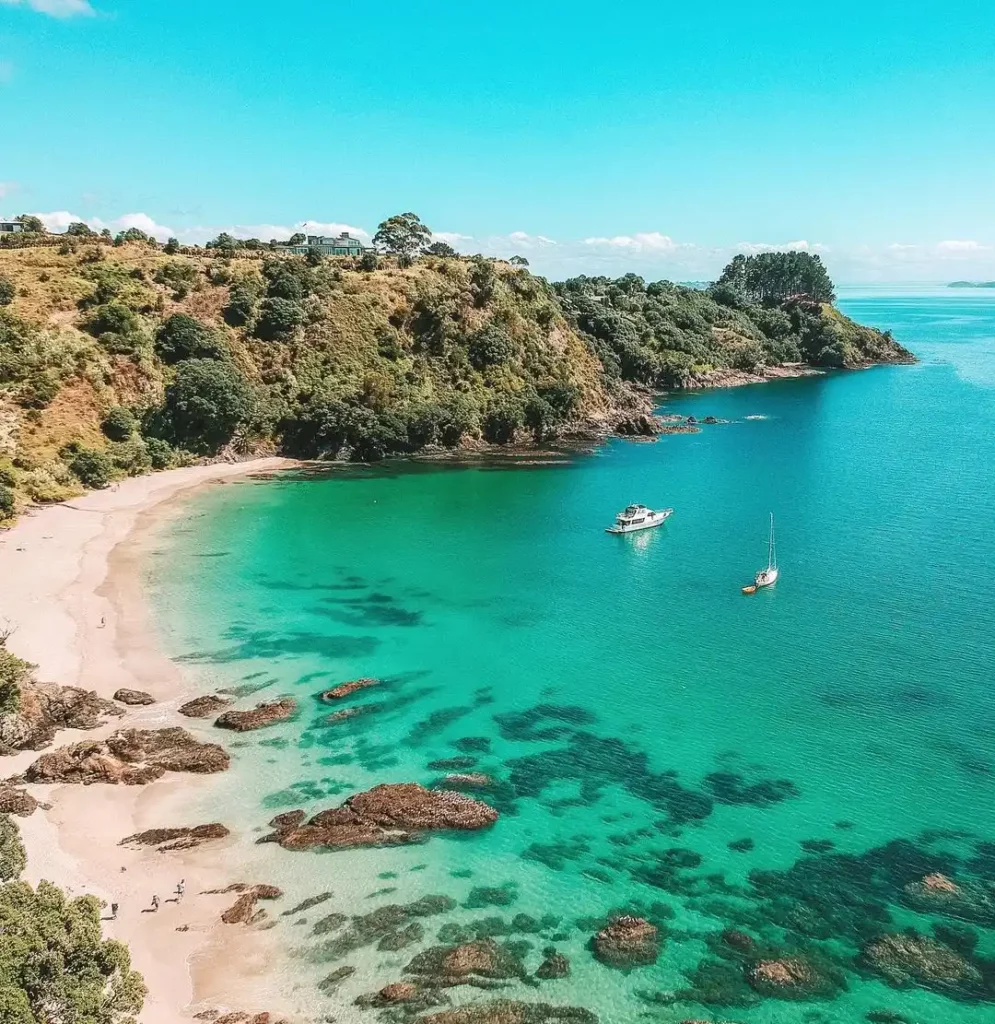
- Morning (8:00 AM – 12:00 PM): Take a ferry to Waiheke Island.
- Late Morning/Early Afternoon (12:00 PM – 2:00 PM): Visit Onetangi Beach, and have a beachside lunch.
- Afternoon (2:00 PM – 5:00 PM): Explore Waiheke’s family-friendly vineyards or go zip-lining.
- Evening (6:00 PM Onwards): Return to Auckland for dinner.
Day 4-6: Rotorua, North Island
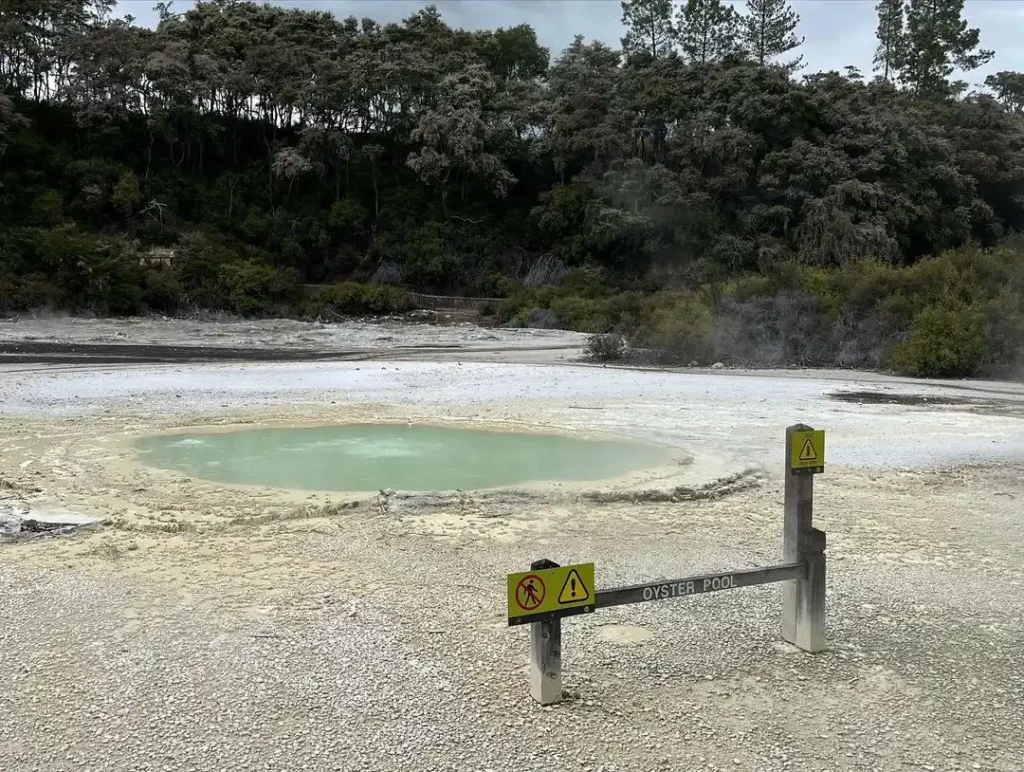
Day 4: Travel to Rotorua
- Morning (8:00 AM – 11:00 AM): Drive or take a flight to Rotorua.
- Afternoon (12:00 PM – 3:00 PM): Check-in at your Rotorua accommodation. Have lunch.
- Late Afternoon (3:00 PM – 6:00 PM): Explore Rotorua’s Government Gardens.
- Evening (7:00 PM Onwards): Have a traditional Maori dinner experience.
Day 5: Te Puia and Geothermal Wonders
- Morning (9:00 AM – 12:00 PM): Visit Te Puia to see geysers and learn about Maori culture.
- Afternoon (12:00 PM – 3:00 PM): Lunch and relaxing time.
- Late Afternoon (3:00 PM – 6:00 PM): Explore the Redwoods Forest, maybe try the tree walk.
- Evening (7:00 PM Onwards): Dinner at a local restaurant.
Day 6: Adventure Day
- Morning (8:00 AM – 12:00 PM): Visit Agrodome for a farm tour and family-friendly activities.
- Afternoon (12:00 PM – 3:00 PM): Lunch at the Agrodome.
- Late Afternoon (3:00 PM – 6:00 PM): Relax at the Polynesian Spa.
- Evening (7:00 PM Onwards): Dinner at a Rotorua eatery.
Day 7-10: Queenstown, South Island
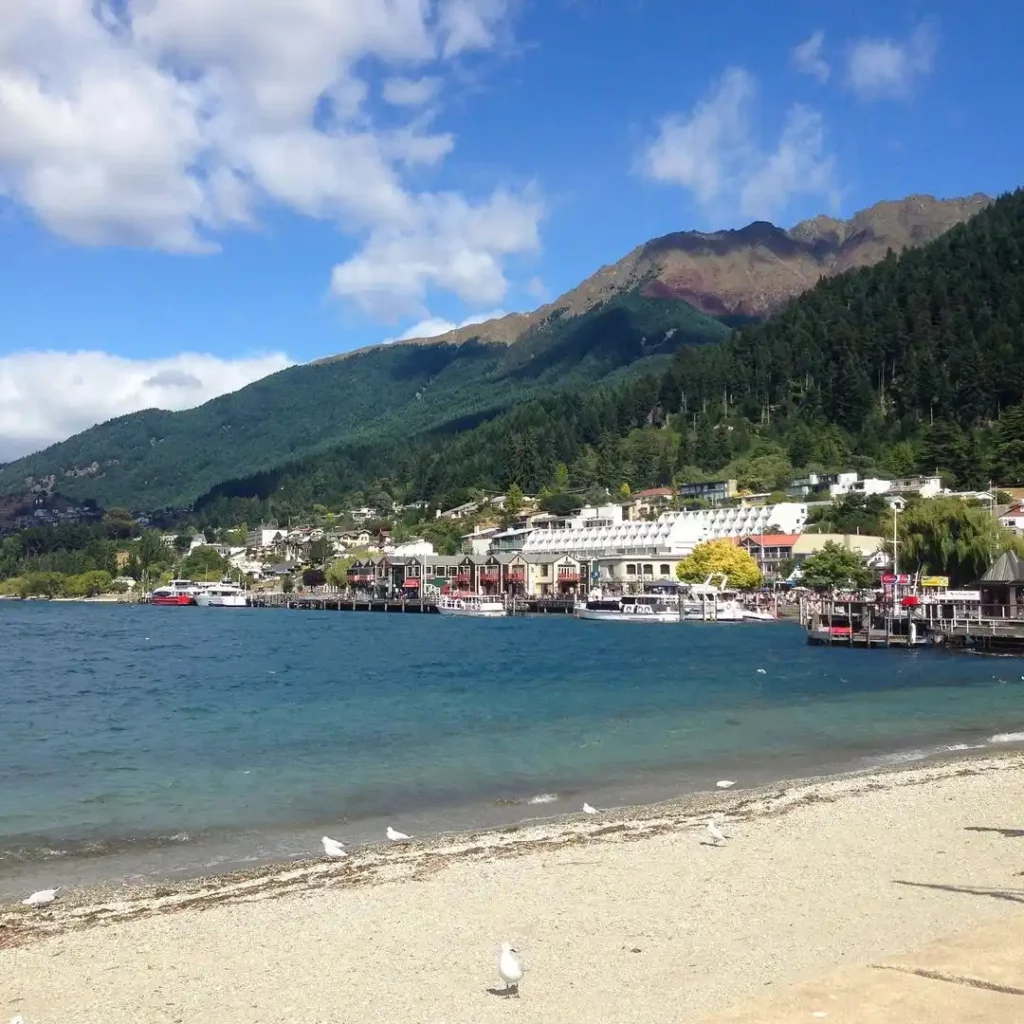
Day 7: Travel to Queenstown
- Morning (8:00 AM – 11:00 AM): Travel to Queenstown. Either fly or drive, depending on your preference.
- Afternoon (12:00 PM – 3:00 PM): Check-in at your Queenstown accommodation. Have lunch.
- Late Afternoon (3:00 PM – 6:00 PM): Stroll along the shores of Lake Wakatipu.
- Evening (7:00 PM Onwards): Explore Queenstown’s vibrant dining scene.
Day 8: Explore Queenstown
- Morning (9:00 AM – 12:00 PM): Take the Skyline Gondola for panoramic views. Enjoy the Luge rides.
- Afternoon (12:00 PM – 3:00 PM): Lunch at the Stratosfare Restaurant.
- Late Afternoon (3:00 PM – 6:00 PM): Explore Queenstown Gardens or enjoy a boat ride on Lake Wakatipu.
- Evening (7:00 PM Onwards): Dinner at a family-friendly Queenstown restaurant.
Day 9: Milford Sound Day Trip
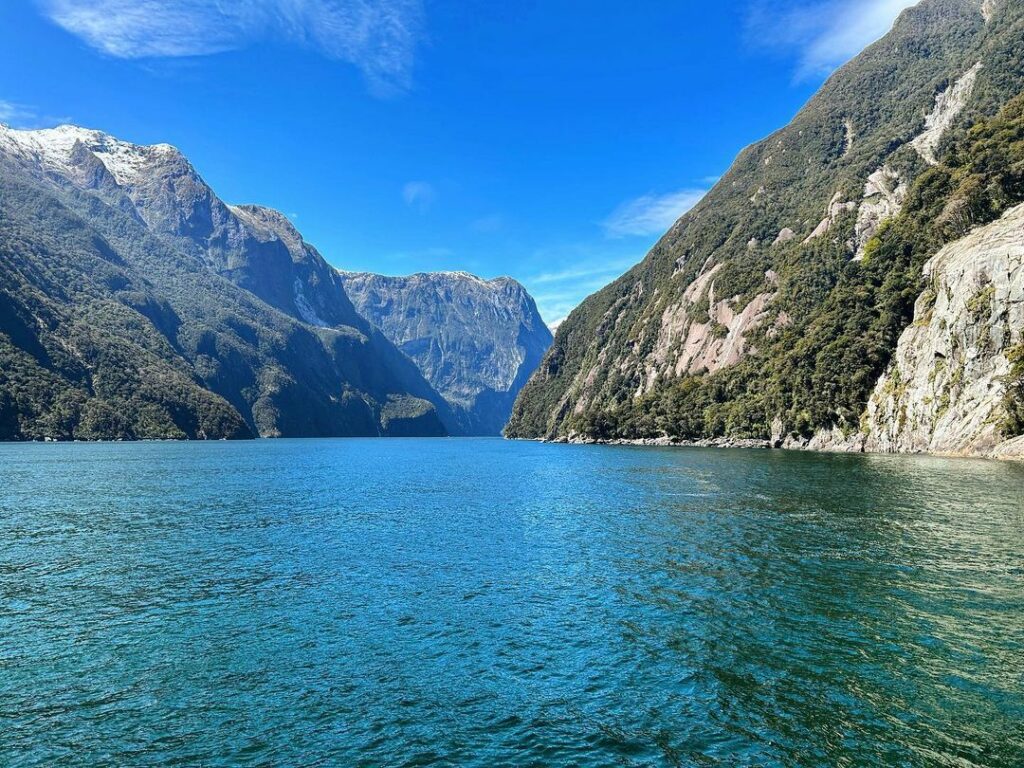
- Early Morning (6:00 AM – 11:00 AM): Take a scenic bus or drive to Milford Sound.
- Late Morning/Early Afternoon (11:00 AM – 2:00 PM): Cruise through Milford Sound, and enjoy lunch on board.
- Afternoon (2:00 PM – 6:00 PM): Return to Queenstown. Relax and have a tasty dinner.
Day 10: Adventure Day in Queenstown
- Morning (9:00 AM – 12:00 PM): Explore the Kiwi Birdlife Park.
- Afternoon (12:00 PM – 3:00 PM): Lunch in the town center.
- Late Afternoon (3:00 PM – 6:00 PM): Choose from family activities like jet boating or horse riding.
- Evening (7:00 PM Onwards): Dinner at a lakeside restaurant.
Day 11-14: Christchurch, South Island
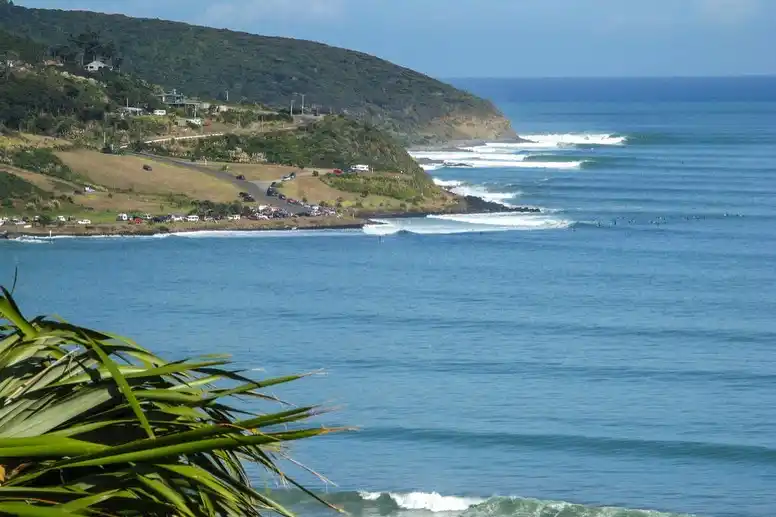
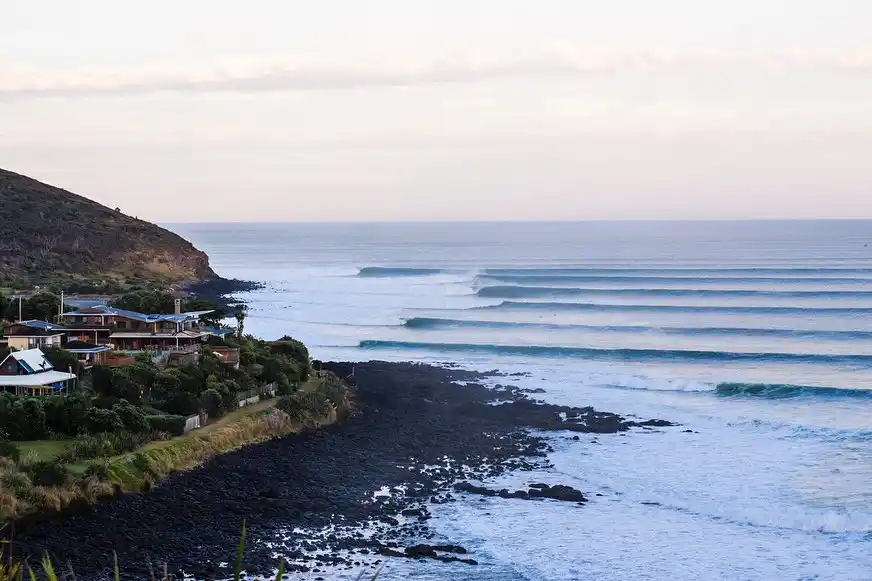
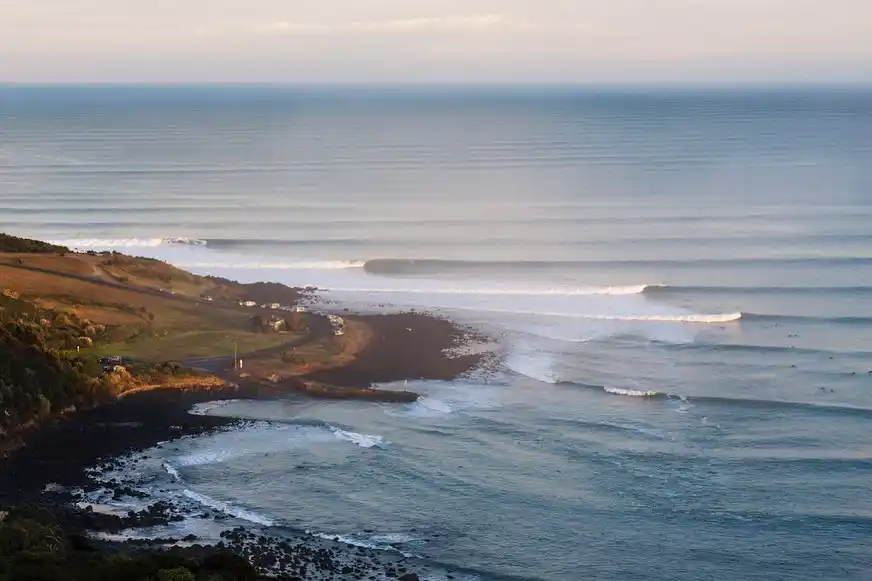
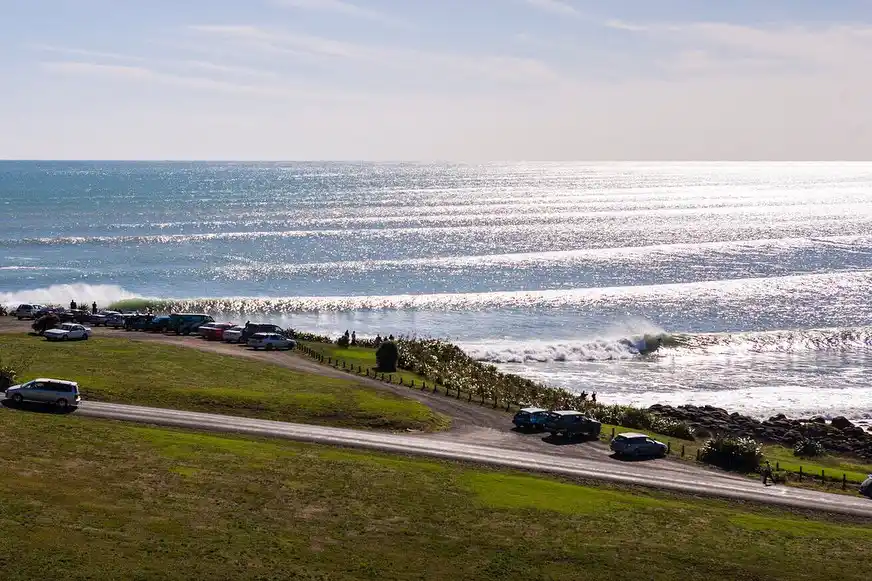
Day 11: Travel to Christchurch
- Morning (8:00 AM – 11:00 AM): Travel to Christchurch by car or plane.
- Afternoon (12:00 PM – 3:00 PM): Check-in at your Christchurch accommodation. Have lunch.
- Late Afternoon (3:00 PM – 6:00 PM): Visit the Canterbury Museum and Botanic Gardens.
- Evening (7:00 PM Onwards): Dinner at a family-friendly Christchurch eatery.
Day 12: Christchurch Exploration
- Morning (9:00 AM – 12:00 PM): Visit the International Antarctic Centre.
- Afternoon (12:00 PM – 3:00 PM): Lunch at the nearby Spitfire Square.
- Late Afternoon (3:00 PM – 6:00 PM): Explore the Christchurch Art Gallery.
- Evening (7:00 PM Onwards): Dinner at the vibrant Riverside Market.
Day 13: Day Trip to Akaroa
- Morning (8:00 AM – 11:00 AM): Drive to Akaroa, a charming French-inspired town.
- Late Morning/Early Afternoon (11:00 AM – 2:00 PM): Explore Akaroa’s harbor, perhaps take a harbor cruise.
- Afternoon (2:00 PM – 6:00 PM): Return to Christchurch. Relax and have dinner.
Day 14: Departure
- Morning (9:00 AM – 12:00 PM): Free time for any last-minute exploration or shopping.
- Afternoon (12:00 PM Onwards): Check-out and travel to the airport for your departure.
This itinerary aims to offer a mix of adventure, cultural experiences, and family-friendly activities across New Zealand’s stunning landscapes. Adjustments can be made based on your family’s interests and preferences.
Additional Mut Know Information
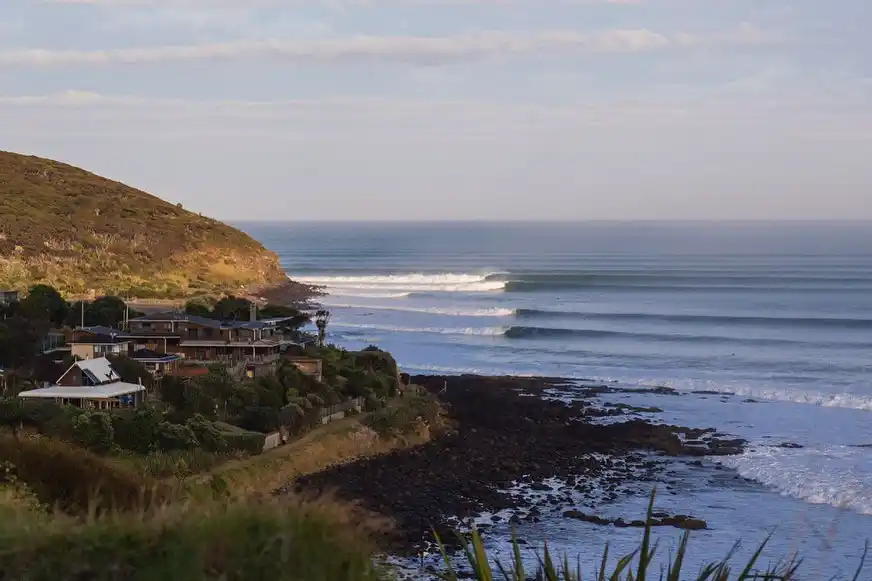
What To Pack + Weather
When packing for New Zealand, it’s essential to be mindful of the diverse weather conditions across the islands. The country experiences four distinct seasons, and temperatures can vary. Here’s a detailed breakdown:
- Summer (December to February): Pack lightweight clothing, sunscreen, a hat, and sunglasses. Don’t forget swimwear, as summer is perfect for beach activities.
- Autumn (March to May): Bring layers, including a light jacket or sweater. Comfortable walking shoes are essential for exploring the changing landscapes.
- Winter (June to August): New Zealand’s winter is from June to August. Pack warm layers, a waterproof jacket, gloves, and a beanie, especially if you plan to visit the mountainous areas for snow activities.
- Spring (September to November): Similar to autumn, bring layers. It’s advisable to pack a mix of clothing suitable for varying temperatures.
Considering New Zealand’s unpredictable weather, it’s always a good idea to pack a mix of clothing options and be prepared for sudden changes. Don’t forget essentials like a good pair of walking shoes and a daypack for excursions.
Travel Requirements
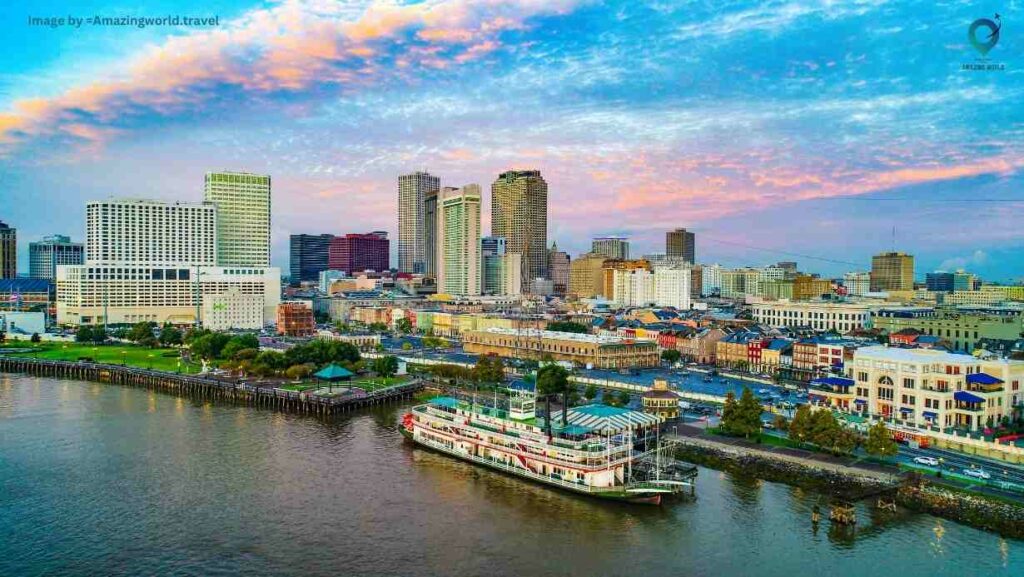
Understanding travel requirements is crucial for a hassle-free trip to New Zealand. Here’s a breakdown:
- Visa Information: Check the visa requirements based on your nationality. Apply for the necessary visa well in advance to avoid any last-minute issues.
- Customs Declarations: Familiarize yourself with New Zealand’s customs regulations. Declare any items of concern to avoid penalties.
- COVID-19 Protocols: Stay updated on the latest COVID-19 protocols and requirements. Check for any travel restrictions or quarantine measures in place.
- Travel Insurance: Consider purchasing travel insurance that covers medical emergencies, trip cancellations, and unexpected events.
Being well-informed about travel requirements ensures a smooth entry and stay in New Zealand.
Cultural Norms + Etiquette
Respecting New Zealand’s cultural norms and etiquette enhances your travel experience. Here’s a guide:
- Maori Culture: The Maori culture holds significant importance. When visiting Marae (Maori meeting grounds), follow cultural protocols and show respect to elders.
- Greeting Customs: The traditional Maori greeting, the hongi, involves pressing noses. In other situations, a friendly handshake is common.
- Removing Shoes: It’s customary to remove shoes when entering someone’s home, a Maori meeting house, or certain cultural establishments.
- Politeness and Courtesy: New Zealanders are known for their friendliness. Use “please” and “thank you” liberally, and show courtesy in public spaces.
By embracing cultural norms, you’ll find your interactions with locals to be warm and enriching.
Some Local Daily Common Use Words
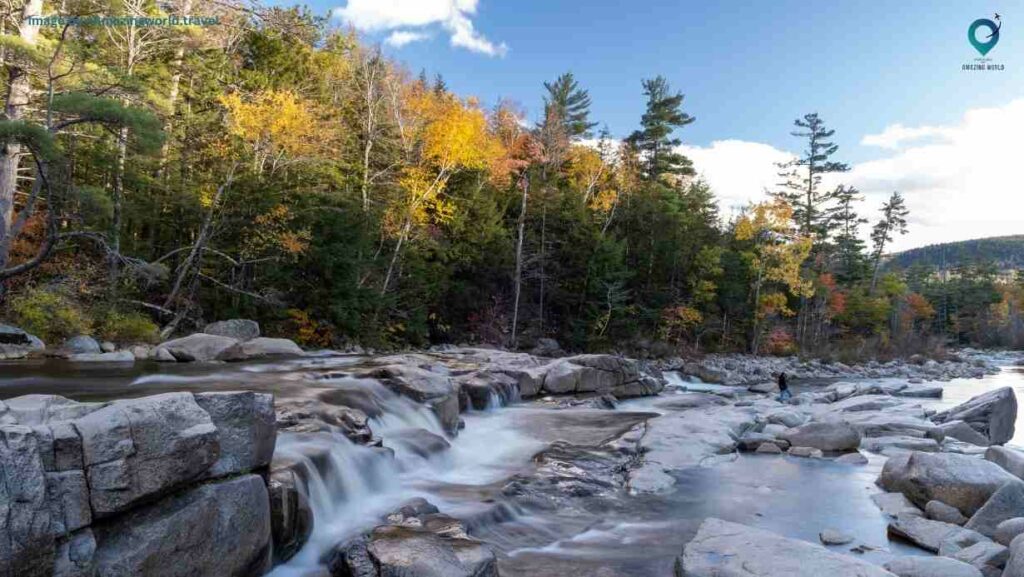
While English is the predominant language, incorporating a few local words adds a personal touch to your conversations:
- Kia Ora: Hello or thank you.
- Haere Mai: Welcome.
- Sweet As: An expression meaning everything is good or okay.
- Tāne: Man, and Wahine: Woman.
- Eating Out Terms: Lingo such as “takeaways” for take-out and “dairy” for a convenience store.
Using these terms not only shows appreciation for the local language but also enhances your cultural immersion.
Health + Medical Facilities
Prioritizing your health during travel is essential. Here’s a guide to health and medical facilities in New Zealand:
- Pharmacies: Easily accessible in cities, pharmacies provide over-the-counter medications and health advice.
- Emergency Services: In case of medical emergencies, dial 111 for immediate assistance. New Zealand’s emergency services are prompt and efficient.
- Health Insurance: Ensure you have comprehensive health insurance that covers medical expenses and emergencies during your stay.
By being proactive about your health, you can enjoy your New Zealand adventure with peace of mind.
Accepted Currency + Payment Types
Understanding the local currency and payment options streamlines your financial transactions:
- Currency: The New Zealand Dollar (NZD) is widely accepted. Familiarize yourself with coin and banknote denominations.
- Credit Cards: Most establishments accept major credit cards such as Visa and MasterCard. Notify your bank of your travel dates to avoid any issues.
- ATMs: ATMs are prevalent in cities and towns, allowing you to withdraw cash as needed.
Nearby Shopping
Discovering local markets and shopping districts can add a vibrant touch to your New Zealand experience. Here’s a closer look at nearby shopping:
- Craft Markets: New Zealand is home to numerous craft markets offering handmade goods, local artwork, and unique souvenirs. These markets often showcase the creativity and talent of local artisans, providing an authentic glimpse into Kiwi culture.
- Malls and Shopping Precincts: Larger cities like Auckland, Wellington, and Christchurch feature vibrant shopping precincts and malls. These areas host a mix of international and local brands, providing ample opportunities for retail therapy.
- Maori-Inspired Art and Jewelry: For a meaningful souvenir, explore shops offering Maori-inspired art and traditional jewelry. These items often carry cultural significance, allowing you to take a piece of New Zealand’s heritage home with you.
- Outdoor Gear Stores: If you’re an outdoor enthusiast, New Zealand’s outdoor gear stores are a treasure trove. Stock up on quality gear for activities like hiking, skiing, or other adventures, ensuring you’re well-prepared for exploration.
By immersing yourself in the local shopping scene, you not only acquire unique treasures but also contribute to the support of local businesses and artisans, making your travel experience even more rewarding.
Transportation Tips
Efficient transportation is key to exploring New Zealand’s diverse landscapes. Let’s delve into practical transportation tips:
- Renting a Car: Opting for a rental car provides flexibility, allowing you to explore both islands at your own pace. New Zealand’s well-maintained roads offer picturesque routes and scenic drives.
- Public Transportation: In major cities like Auckland and Wellington, public transportation, including buses and trains, is a cost-effective way to navigate urban areas. Familiarize yourself with routes and schedules for a hassle-free commute.
- Domestic Flights: For covering significant distances or reaching remote areas, consider domestic flights. New Zealand’s domestic flights are efficient and provide stunning aerial views of the landscape.
- Interislander Ferry: If your itinerary involves traveling between the North and South Islands, the Interislander Ferry offers a scenic journey across the Cook Strait. It’s a unique experience that adds a maritime touch to your adventure.
By understanding and utilizing the various transportation options, you can maximize your time and make the most of your New Zealand exploration.
Safety Tips
Prioritizing safety ensures a worry-free and enjoyable travel experience in New Zealand. Here’s an in-depth look at safety tips:
- Outdoor Adventure Safety: Whether hiking in national parks, skiing in the Southern Alps, or engaging in water activities, always adhere to safety guidelines. Wear appropriate gear, stay informed about weather conditions, and follow designated trails.
- Driving Safety: If renting a car, familiarize yourself with New Zealand’s Road rules. Roads can be winding, and some areas may require extra caution. Take breaks during long drives to stay alert and enjoy the journey safely.
- Water Safety: With its pristine beaches and lakes, water activities are popular in New Zealand. Pay attention to local safety warnings, currents, and tides. Always swim in designated areas, and if unsure, ask locals for advice.
- Wildlife Awareness: New Zealand is home to unique wildlife. While exploring nature reserves and conservation areas, respect wildlife from a distance. Follow guidelines provided in these areas to ensure both your safety and the preservation of the environment.
- Emergency Numbers: Save emergency contact numbers, including the local police emergency number (111), in your phone. Familiarize yourself with the locations of medical facilities and the nearest embassy or consulate.
Conclusion.
Your 2-week adventure in New Zealand promises a perfect blend of diverse experiences, cultural immersion, and safety precautions. With a thoughtfully crafted itinerary covering the North and South Islands, coupled with essential must-know information, you’re well-prepared for this unforgettable journey.
Whether navigating the dynamic weather, exploring local markets, or embracing cultural etiquette, your trip is poised to be a seamless and enriching exploration of the stunning landscapes and warm hospitality that New Zealand has to offer. Safe travels and enjoy every moment of your Kiwi adventure!
How much did you like Our detailed EPIC 2-Weeks New Zealand Travel Itinerary for first-timers (2024)? Review Also, please share these Blogs with your friends on social media.
Related Article –
- Lakshadweep Itinerary
- Morocco Itinerary
- 7 Day Phuket Itinerary
- LA 7-Day Itinerary
- Japan Itinerary
- Pattaya, Thailand
- Korea Travel itinerary
- Epic Itinerary Road Trip
- Delhi to Manali

Meet David Hoper, a passionate travel Blog writer with 7+ years of experience in travel content. Through his exemplary storytelling and engaging narratives, he shares his experiences and brings destinations to life. With a keen eye for detail and a love for exploration, he has cultivated a diverse portfolio of travel blogs that inspire and inform readers worldwide.
